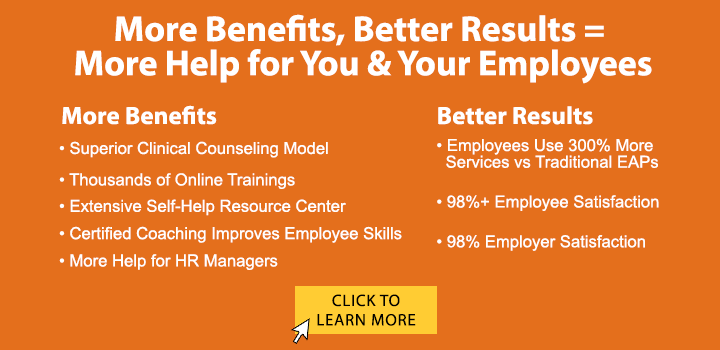This HR News Roundup covers HR burnout; a legal ruling on sexual harassment that holds HR responsible; an EEOC ruling on service animals; the high toll that diabetes takes in the workplace; and more. And take a brief break to enjoy some items from the lighter side!
Burnout for HR leaders isn’t getting any better. What can be done?
Dawn Kawamoto, Human Resource Executive
Feeling worn, tired and crispy on the edges like a piece of burnt toast? Chances are, you’re an HR leader.
It turns out that HR leaders ranked the highest among other professionals when it comes to two key burnout metrics, according to Executive Networks’ 2023 Future of Working and Learning Report released Thursday.
According to a survey of more than 1,300 HR leaders, business leaders, knowledge workers and frontline workers across the globe, HR leaders were substantially more likely than others to be at risk of leaving their current employer in the next 12 months.
Related: HR pros say they’re stressed about retention amid layoffs – As sourcing and hiring remains costly, close to half of respondents to a recent survey said they do not believe the great resignation is over.
The Perks Workers Want Also Make Them More Productive
Monica Potts, FiveThirtyEight
Policies like these have conventionally been seen as good for workers’ personal lives but bad for business. But thanks to the massive, sudden changes brought on by the pandemic, we now have more data than ever, and it shows that assumption is mostly wrong. Overall, policies that are good for employees’ personal lives are, when enacted correctly, good for their work lives, too. In fact, they seem to be good for everyone. The only question is whether we’ll start to see more companies adopt them.
EEOC reports surge in charges in fiscal year 2022
Judy Greenwald, Business Insurance
The U.S. Equal Employment Opportunity Commission received 73,485 discrimination charges in fiscal year 2022 ended Sept. 30, an almost 20% increase from the previous fiscal year, the agency said in a report issued Monday. It also managed 475,000 calls, which was an 18% increase from FY 2021, and managed 32% more emails from the public, the report said.
EEOC lawsuit highlights risks associated with not accommodating service animals
Jon Hyman, Ohio Employer Law Blog
The EEOC has filed a disability discrimination lawsuit against Papa John’s Pizza claiming that it denied the request of Michael Barnes, who is blind, to bring his service dog — Indie, a black lab — with him to work. After denying his request, the agency alleges, the pizza company fired Barnes.
This seems like an easy accommodation request to get right, and yet so many employers get it wrong. Here’s a handy Q&A for your next service animal accommodation request in your workplace.
Why the McDonald’s ruling means it’s time to revisit your sexual harassment policies
Will Bunch, Human Resource Executive
In late January, a Delaware judge issued a landmark decision in a case involving fast-food giant McDonald’s, ruling that shareholders can sue not only the corporation but also its former chief people officer, David Fairhurst, over allegations that as CHRO, Fairhurst turned a blind eye to a toxic workplace atmosphere of rampant sexual misconduct. This included bad behavior by former CEO Steve Easterbrook, his close friend; Easterbrook’s ouster in 2019 caused shares of McDonald’s to fall sharply.
The ruling is a game-changer because it sets a new precedent in which HR leaders can now be held liable for failing to aggressively monitor and rein in an environment that permits sexual harassment in their company, according to experts like Melanie Naranjo, the vice president for people at Ethena, a leading compliance-training firm.
Here’s how much diabetes costs employers each year
Paige Minemyer, Fierce Healthcare
Diabetes costs employers billions every year in both direct costs and indirect costs, as the disease impacts productivity and absenteeism, according to new data from Nomi Health.
The direct healthcare provider analyzed the costs associated with diabetes as part of its Trends in Spend Tracker, which uses claims data to identify shifts in healthcare spending. Nomi Health examined about 500,000 employer claims, and estimated that diabetes costs them $245 billion per year.
Of that, about $175 billion in annual spending is direct costs, such as medication and treatment. The remaining $70 billion is related to indirect costs, such as absenteeism, lost productivity and disability, according to the report.
HR News Roundup: Quick Takes
- How Does a Recession Affect Recruiting?
- Why Skills-Based Hiring is on the Rise and Should Remain that Way
- How to be a better loser
- Mentors Aren’t Enough: What Women Need to Advance
- 7 Insights Into Women’s Lives in the U.S.
- Microsoft adds OpenAI technology to Word and Excel
- AI is coming to Google Workspace, too
- Employee needs should drive AI adoption, consulting firm recommends
- 7 Emergency Preparedness Apps to Keep on Your Phone
- Pandemic Pushes Planned Retirement Age by 3 Years: Franklin Templeton
- 4 retirement plan trends employers should track in 2023
- Almost Half of All Public Health Workers Left Their Jobs Over the Past 5 Years
- AMA, Surgeon General Propose Ways to Prevent Doctor Burnout
From the Lighter Side …
Do you ever feel like you keep working and getting nowhere? Consider Sisyphus, who was cursed by the gods to continually push a rock up a hill, only to have it roll back. A fellow named Ross McSweeney made an excellent kinetic sculpture of Sisyphus, and if you are handy, he sells the files so you can make your own model.
- Computers are convenient and all, but do you ever miss the sights and sounds of old-style typewriters? Or maybe you are too young to have ever had that experience. Visit Shift Happens, a typewriter simulator for a bit of nostalgia.
- Looking at things from a different angle can sometimes change your perspective.(Twitter link)
- Prove you’re a human (Twitter link)
- What’s the secret to a long life? Keep your eyes open – and leap into the future: 100 centenarians’ 100 tips for a life well lived


